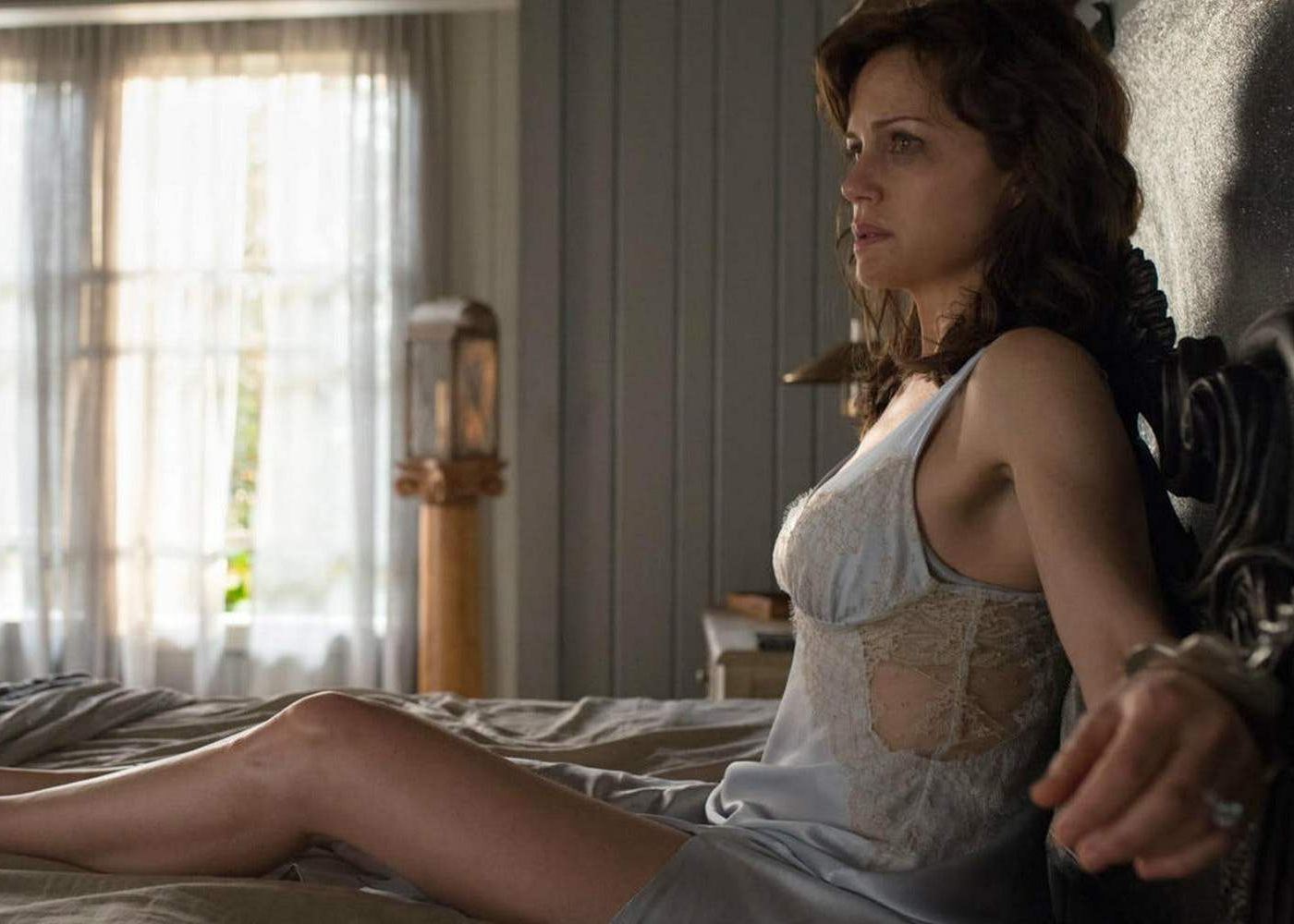Brief programming note: I wrote this last October for a series celebrating women of horror in the lead up to Halloween. For one reason or another this piece didn't make it into the series before Halloween passed. One year later, here we are again, celebrating another Halloween season, and Carla Gugino is once again starring in a Netflix horror production from director Mike Flanagan, this time the dread-filled new series The Haunting of Hill House. I'm two episodes in and loving it so far. Gugino is an unsung national treasure, so it's good to see her in some higher profile work. She's also a natural fit for horror, bringing the right combination of strength and vulnerability necessary to really shine in the genre. Her performance in Flanagan's Gerald's Game was one of my favorites of 2017. Here's why.
*****
Most actors would be hampered in their performance by spending the majority of a film handcuffed to a bed. They might struggle with the inability to move freely, to better express their character's interiority. Carla Gugino is not most actors, though. Her abundant charisma, exceptionally expressive eyes, and thoughtful acting choices—again, all while handcuffed to a bed—work in perfect harmony to create a remarkable performance in Gerald's Game, Netflix's and Mike Flanagan's effectively haunting adaptation of Stephen King's emotionally crushing novel.
In a tale of survival, fraught with monsters both real and imagined, with past and present horrors suffocating her, Gugino masterfully reveals Jessie's struggle to literally break free of her handcuffs while metaphorically breaking free from a traumatic childhood event that has informed her entire existence. Jessie's been manipulated by the two most important men in her life, her father and her husband. Her father used her undying love for him to take advantage of her in a disgusting abuse of parental power. Her husband is purely selfish and self-pitying, treating Jessie with condescension and willful neglect.
Shackled to the bed in a seated position, arms extended outward on either side, legs spread out in front of her, wearing only a silk slip, Gugino uses all of these acting limitations to convey Jessie's emotional and physical difficulties. After Gerald's kinky sex games go horribly awry, Jessie is faced with the scars of a life shaped by toxic masculinity. For years she's buried it all, deep down inside, and simply persisted. Now, (mostly) alone with her thoughts—brought to vivid life by apparitions of a cocksure Gerald and a thoughtful, more assured version of herself—she has no place to run, no where to hide. And then there's the spectral Moonlight Man (whom Jessie calls the Space Cowboy in the book). He appears to her at night, his malformed body slowly, horrifically emerging from the shadows in the corner of the room. Is he real, flesh and blood, or just a potent mental manifestation of her fear and anxiety? Well, there is that footprint in the room, visible the next morning.
Gugino's career spent just outside the margins of superstardom has always hinted at something more. With the right project and at the right time, she would show the world what her fans have always known: she has the skills and the determination to carry a narrative on her own. Gerald's Game provides that ideal role, and Gugino seizes the opportunity with ferocious intensity. She honors King's three-dimensional portrait of Jessie in the book, while also adding new layers of depth to it. Again, and this bears repeating: she spends most of the film's running time chained to a bed. Forgive my redundancy, but I can't emphasize enough how brilliantly she utilizes her constrained circumstances to deliver a nuanced and riveting performance.




Comments
Post a Comment